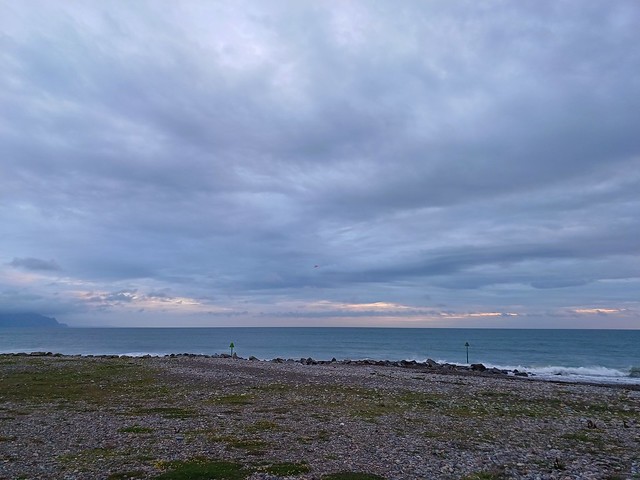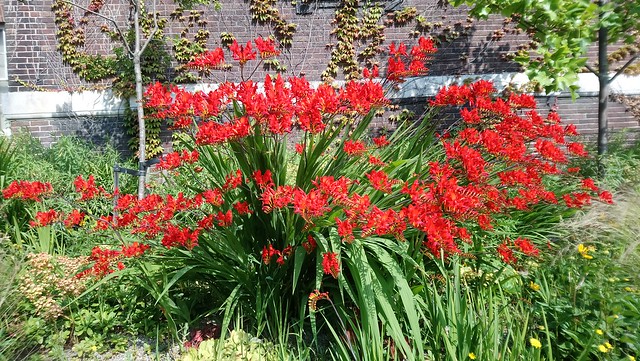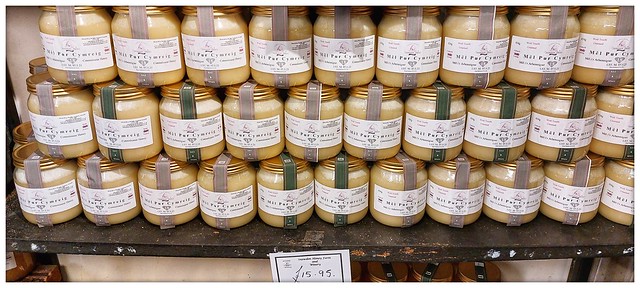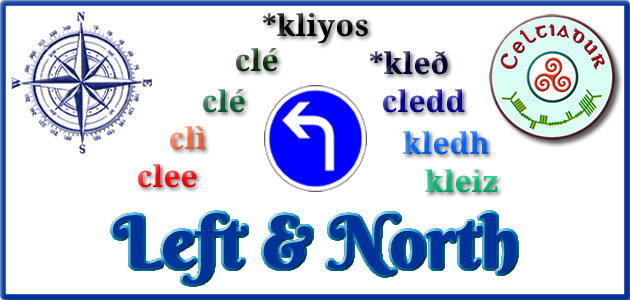Words for grey and related words in Celtic languages.
Words marked with a * are reconstructions.
| Proto-Celtic | *ɸlētos = grey |
|---|---|
| Old Irish (Goídelc) | líath [l͈ʲiːa̯θ] = grey, grey-haired |
| Middle Irish (Gaoidhealg) | líath, liath = grey, grey-haired, aged |
| Irish (Gaeilge) | liath [ˈl̠ʲiə] = grey, grey-haired (person), pale liathábhar = grey matter liathach = greyish liathacht = greyness, greyishness liathadh = greyness liathbhán = greyish white, pale, wan liathbhuí = sallow liathdhearg = pale red, pinkish liathghlas = pale green, pale grey liathghorm = pale blue, blue-grey, livid |
| Scottish Gaelic (Gàidhlig) | liath [l̪ʲiə] = grey, grizzled liath-dhearg = pink liath-ghlas = light grey, hoary liath-ghorm = lilac liathach = greyish, dirty white liathachadh = making grey, creamer, whitener liathad = degree of greyness, staleness liathadh = making grey, becoming grey, greying, growing mouldy liathtas = greyness |
| Manx (Gaelg) | lheeah = grey, silver, grey- or white-haired, grey-headed, hoary, musty, mould lheeaghid = greyness lheeaghys = greyness, hoariness, mustiness lheeah-ghlass = light grey, sage green lheeah-ghorrym = blue-grey, glaucous, livid lheeah gorrym-yiarg = mauve lheeah-vane = whitish lheeah-wuigh = yellowish |
| Proto-Brythonic | *luɨd = grey |
| Middle Welsh (Kymraec) | luit, llvid, lluid, lluyd, llwyt = grey, pale, pallid, wan lwytlas = greyish-blue, pale |
| Welsh (Cymraeg) | llwyd [ˈɬuːɨ̯d / ˈɬʊi̯d] = grey, faint; pale, pallid, wan; russet, brown; turbid, muddy (water); grey-haired, grey-headed, old, ancient; grey (hair), grizzled llwydaf, llwydo = to turn grey or brown, to become turbid or muddy, turn pale, fade, grow old, deteriorate, decay llwydaidd = greyish, rather pale, brownish, turbid, drab, poorish, dreary, dismal, lacking enthusism, lukewarm llwyd-ddu = dark grey, greyish black, blackish, dusky, swarthy, dun llwydedd = greyness, mouldiness, mould, mildew, mustiness, hoariness, pallor, paleness llwyd-felyn = greyish-yellow, beige, fawn, pale brown, khaki, buff llwydlas = greyish-blue, pale |
| Old Cornish | luit, lot = grey, mouldy |
| Middle Cornish (Cernewec) | loys = grey, mouldy |
| Cornish (Kernewek) | loos [lo:z / lu:z] = grey, hoary, mouldy |
| Old Breton | loit = mold, moldy |
| Middle Breton (Brezonec) | loüet = mold, moldy loedadur = moldy |
| Breton (Brezhoneg) | loued = grey, mouldy louedadur = mold, blight louedan, louedañ = to turn grey, mold louedek = to greyness |
Etymology: from Proto-Indo-European *pelh₁- (pale). Words from the same roots include fallow, pale, pallid and polio in English, and the names Floyd and Lloyd [source].
| Proto-Celtic | *blāros = grey |
|---|---|
| Gaulish | *blāros = (?) |
| Old Irish (Goídelc) | blár = grey, blaze (on a horse) |
| Middle Irish (Gaoidhealg) | blár = grey |
| Irish (Gaeilge) | blár = blaze on animal’s forehead |
| Scottish Gaelic (Gàidhlig) | blàr [bl̪ˠaːr] = blaze, white-faced, having a white foreheard (applied to cows and horses) blàrach [bl̪ˠaːrəx] = white-faced (of an animal) blàradh [bl̪ˠaːrəɣ] = (act of) blazing, roughly hewing blàrag [bl̪ˠaːrag] = blaze, white-faced animal (cow or horse) blàras [bl̪ˠaːrəs] = blace (i.e. white spot) |
| Proto-Brythonic | *blọr = grey (?) |
| Middle Welsh (Kymraec) | blawr, blaur, blaỽr = grey, greyish-blue, pale-blue, white, greyish-white, hoary, tawny, russet (of horses) blawrfrych = speckled grey |
| Welsh (Cymraeg) | blawr = grey, greyish-blue, pale-blue, white, greyish-white, hoary, tawny, russet (of horses) blawrgoch = tawny, russet, greyish-red blawrio = to turn pale, green or grey; become hoary, grow light blawrwyn = grey, whitish-grey, light grey, white, hoary, pale blue |
Etymology: possibly from Proto-Indo-European *bʰleh₁- (yellow, blue). The Occitan word blar (glaucous) comes from the root, via Gaulish *blāros and Latin Blārus. The English word blue comes from the same PIE root [source].
Sources: Wiktionary, Am Faclair Beag, Online Manx Dictionary, Teanglann.ie, eDIL – Electronic Dictionary of the Irish Language, In Dúil Bélrai English – Old Irish glossary, Geiriadur Prifysgol Cymru, Gerlyver Kernewek, Dictionaire Favereau, TermOfis, English – ProtoCeltic WordList (PDF), Etymological Dictionary Of Proto Celtic









